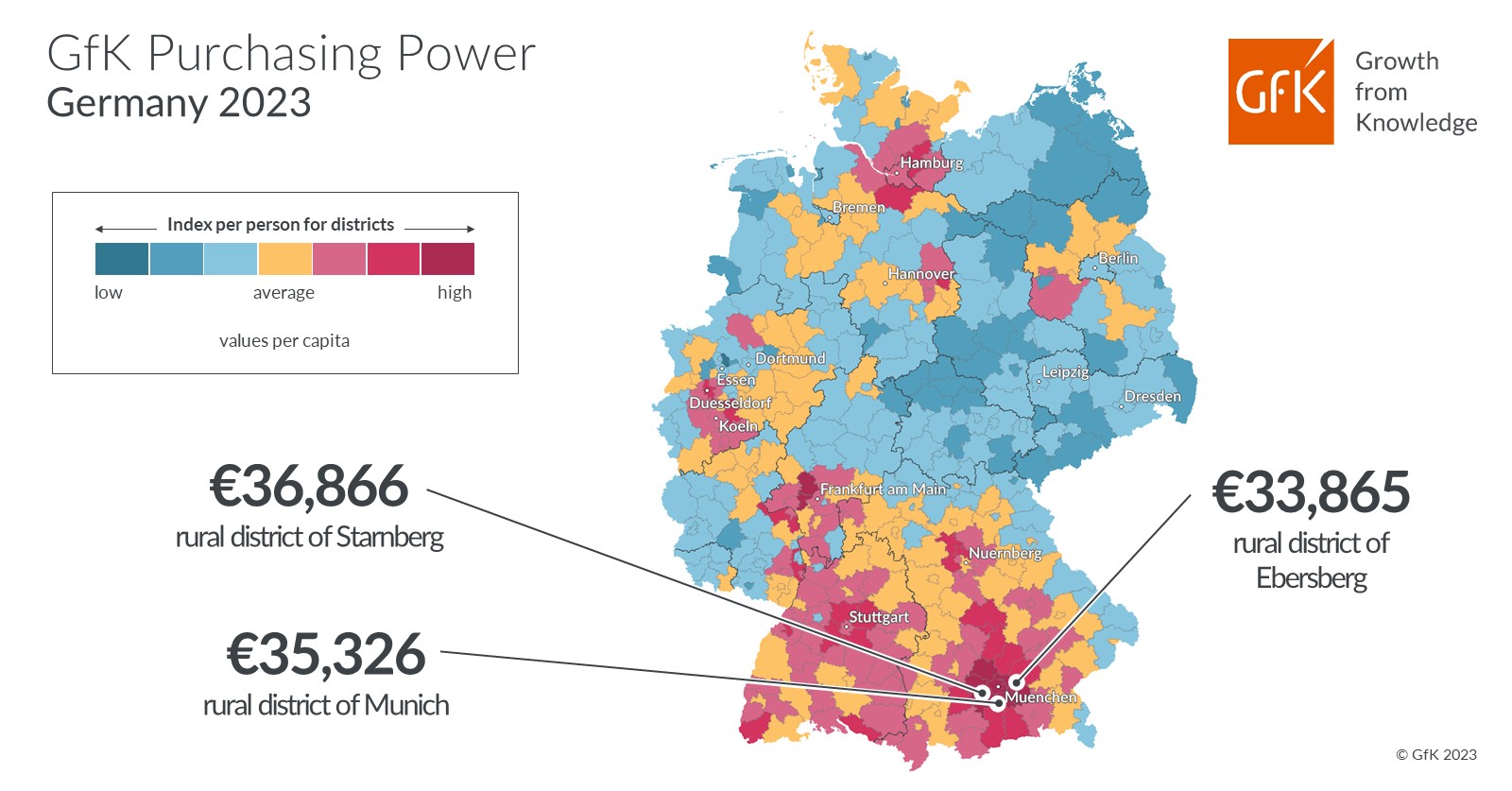Tips when shopping in supermarket in Germany
Germany is a country with a developed and diverse supermarket system, offering its residents and visitors a wide range of convenient shopping options. Supermarkets in Germany are considered an important part of the country’s economy and consumer culture.
In Germany, you can find major international supermarkets such as Aldi, Lidl, Edeka, and Rewe. These supermarkets typically offer a variety of products ranging from fresh groceries, electronics, clothing, to household items and daily necessities. With their large scale and diverse product offerings, these supermarkets attract consumers with competitive prices and convenience in shopping.

In addition to major supermarkets, Germany also has self-service store models such as Kaufland, Real, and Globus. These stores are usually large and provide a wide range of products from fresh groceries, electronics, household goods to consumer goods and personal care products. Furthermore, these supermarkets often have sections dedicated to rural goods and local products, creating a diverse and rich shopping experience.

When shopping at supermarkets in Germany, there are some important tips to keep in mind to avoid unnecessary trouble. This article will introduce some key points to remember when shopping at supermarkets in Germany.
- Bring your own reusable bags:
In Germany, the use of single-use plastic bags is discouraged. Instead, people often bring their own reusable bags or tote bags when shopping. This is aimed at reducing plastic waste and protecting the environment. Therefore, before going to the supermarket, make sure you have prepared reusable bags to carry your groceries. - Queue properly:
In Germany, queuing properly is highly important. When you arrive at the supermarket, you will notice designated queue lines leading to each checkout lane. Stand in line and wait for your turn. Properly queuing is part of social etiquette in Germany and is considered polite and respectful to others. - Sort waste correctly:
In Germany, waste sorting and recycling are integral parts of daily life. At the supermarket, you will often find bins labeled for different types of waste such as organic waste, paper, plastic, and glass. Make sure you dispose of the waste in the appropriate bins. This helps improve recycling efforts, minimize waste, and ensure a greener living environment. - Cash and card payments:
In Germany, cash payment is common, but most supermarkets also accept card payments. However, note that not all small shops or outdoor stalls may accept card payments. Therefore, make sure you have enough cash or check beforehand to know the accepted payment methods. - Follow opening hours:
Supermarkets in Germany usually have fixed opening hours and strictly adhere to them. Typically, supermarkets close in the evening and on Sundays. Therefore, make sure to check the opening hours in advance to avoid going there and not being able to make purchases. - Coin deposit for shopping carts:
Each supermarket will have shopping carts available near the entrance, and if you want to use them, you will need to deposit a coin with a value ranging from 50 cents to 2 euros. After using the cart, to retrieve your coin, simply return it to its designated spot, lock it, and take your coin back.

When shopping at supermarkets in Germany, it is important to adhere to these guidelines to have a convenient shopping experience and avoid any unwanted issues. Additionally, following Germany’s rules and sustainable lifestyle practices contributes to environmental protection and creates a more polite and high-quality society.
RELATED ARTICLES
THINGS TO NOTE WHEN WORKING MORE IN GERMANY
If studying abroad in Germany and intending to work part-time, international students need to clearly understand the regulations and requirements of this country. Below are important things you need to keep in mind when working part-time in Germany. 1. Working regulations – International students have two options for working hours: work 120 days a year […]
GERMAN WORK CULTURE
Germany is one of the countries with the largest economies in Europe and the world, notable for its professional and efficient working style. German working culture not only helps this country achieve impressive economic achievements but also creates an ideal working environment. Let’s explore with HHD Academy the outstanding and unique features of their working […]
7 THINGS INTERNATIONAL STUDENTS NEED TO DO AS SOON AS ARRIVING IN GERMANY
To have a smooth and convenient study abroad journey, here are 7 things international students need to do as soon as they arrive in Germany: 1. Find accommodation You should consider and choose carefully because accommodation greatly affects your studies and travel. You should look for accommodation before coming to Germany through groups, websites and […]
TYPES OF SETTLEMENT IN GERMANY FOR FOREIGNERS
Many international students choose Germany as a place to study and work with the desire to have the opportunity to settle here permanently. With a clear and flexible legal system, Germany offers various forms of settlement for foreigners. Let’s find out with HHD Academy what those forms are. 1. Residence card This type of temporary […]
Cost of Living in Germany – Updated for 2024
The cost of living in Germany is quite reasonable compared to other European countries. As a single person, you will need a minimum of €934 per month (around $1,018 US dollars) or €11,208 per year (around $12,217 US dollars) to cover your living expenses in Germany as of 2024. A family of four, on the […]










